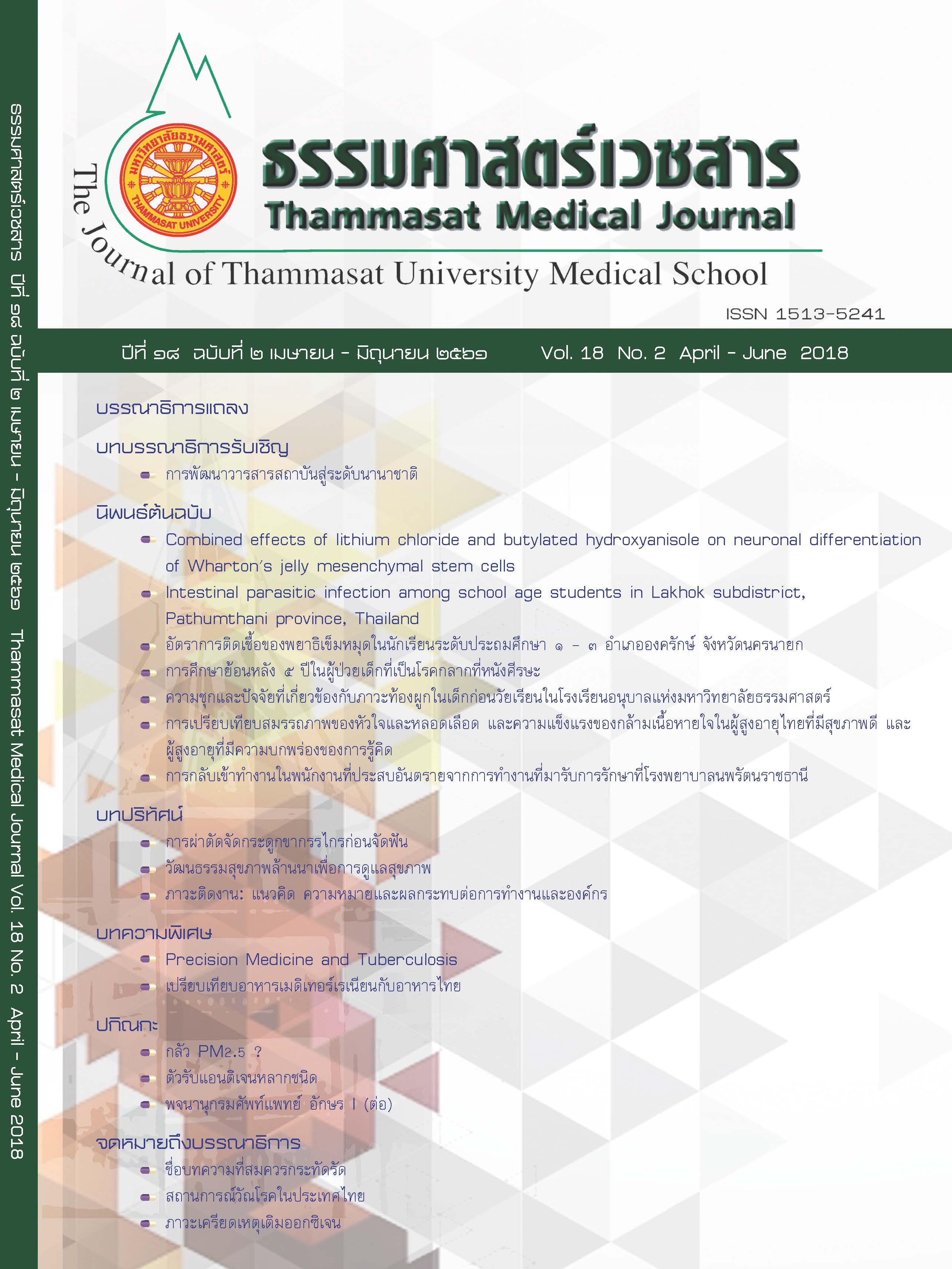The prevalence of constipation in preschool children at The Kindergarten of Thammasat University: a school-based study using Rome III criteria
Keywords:
Children, functional constipation, Rome III, prevalence, factorAbstract
Introduction: to study the prevalence and factors associated with constipation in preschool children among age 3 - 5 years
Method: The questionnaire, which covered socio-dermographic variables and the bowel habits of the children, was completed by the parents of 399 children who were attending at The Kindergarten of Thammasat University, Patum-thani, Thailand in April-September 2014. The children's bowel habits were evaluated by use of the Rome III criteria, which is a validated questionnaire. Children with constipation were diagnosed based on Rome III criteria Cross-sectional and descriptive study.
Results: Based on the 362 students who completed the questionnaire, the prevalence of constipation was 25.1 %. Symptoms associated with constipation were defined as defecation frequency of <3/wk 96.7%, painful and hard bowel movement 84.6% and retentive posturing 54%. Constipated children had a significantly fluid intake less than 1000 ml/day than the non-constipated group (81.3 vs 61.6%, P 0.008). The family history of constipation was significantly higher in constipated group. Only 21 % of the children with constipation sought medical attention for their symptoms.
Discussion and Conclusion: Our findings showed that constipation is a common health problem in primary school children. In an effort to increase awareness of children's bowel habit problems, the risk factors for constipation. The education campaigns are necessary for parents to help develop healthy dietary habit and bowel habit in early life to prevent childhood constipation.


